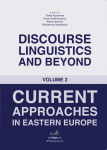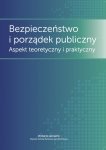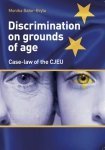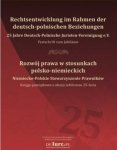The European Union is one of the extraordinary international projects that have been adopted in Europe in the twentieth century. It is an international organization that has a number of traits that transcend traditional cooperation. One of them and, at the same time, the most important is the nature of EU law, which is created by the EU institutions within the limits of competences entrusted to the Union by the Member States in the Founding Treaties. In addition, it is worth emphasizing the position of the individual, who is not only the subject of regulations, but, above all, the subject of rights and obligations of the established legal system. The Union pursues the aims defined in the Treaties. One of them is to establish an Internal Market understood as an area without borders in which the free movement of goods, citizens, services, entrepreneurship, capital and payments is guaranteed.
The subject matter taken into consideration in this publication are personal freedoms, which are conditioned directly by the exercise of one of the civil rights - the freedom of movement.
The above-mentioned freedom was regulated already in the Founding Treaties, however, the creators of the Treaties limited it to one personal category - employees and entities moving to provide services or to start a business. The basic condition for the acquisition of the right of residence in the territory of the host country was a specific economic activity. At the same time, the structure of the rights connected with the status of a migrant worker guaranteed that he would not be a burden for the host country. The first Founding Treaty of the European Coal and Steel Community referred to the free movement of workers only in the context of a migrant worker who worked in the coal and steel sector.
Another Treaty on the European Economic Community established a Single Market in which the free movement of workers was gradually realized. Pursuant to its provisions, nationals of the Member States were free to move to seek employment within the Common Market. However, like in the ECSC, the adopted solutions were not targeted at the individual, but at the employee - an entity appearing on the labour market - bringing a certain economic value from the perspective of the Internal Market. The indicated provisions were implemented gradually.
The initial provisions regulating the position of a migrant worker clearly stated that the basis for obtaining the right to reside in the host country was the status of a migrant worker. The worker's rights in the territory of the host country were dictated by the need to create stable conditions that would enable the employee to be fully effective in the performance of his duties. An analysis of the case-law of the
Court of justice indicates that it saw the need for a broader catalogue of migrant workers' rights, which would enable the workers to fully assimilate into the host country. It emphasized the need to create proper social protection, but also to guarantee residence rights to economically inactive citizens. The definite position of the Court of justice was implemented already in the 1990's. Consequently, three Directives were adopted: 90/364, 90/365 and 93/96, whose provisions extended the personal scope of the right of residence also to those citizens of the Member States who did not show any economic activity in the host country, students and pensioners. The indicated categories of entities acquired the right of residence, provided they had insurance and sufficient means of subsistence.
However, there is no doubt that the establishment of citizenship radically influenced the concept of freedoms of the Internal Market and their typology. Consequently, the Court of Justice and the doctrine began to use the concept of personal freedoms, which refer to the free movement of persons and certain aspects of the free movement of services and entrepreneurship. In the discussed case, the basis for using the freedom is launching the institution of citizenship. The interested party crosses the border and applies for a residence permit as a migrant citizen. It is only when he obtains the right of residence that he specifies his status, i.e. he proves that he is an employee within the meaning of EU law, a service provider or an entity starting a business. As emphasized, the basis is the right of a citizen, while clarifying the status modifies the claims that a migrant citizen is entitled to in the territory of the host country.
The development of the case-law of the Court of Justice and of the EU legislation still leaves many problems that need to be highlighted. The current political situation, especially the migration crisis and the prospect of the United Kingdom leaving the European Union are not without significance for the way of exercising personal freedoms.
This publication is one of three publications devoted to the broadly understood right to migration, with particular attention paid to the Polish experience. It's aim is to indicate selected problems related to the exercise of personal freedoms of the Internal Market in the context of the changing political and economic situation in Europe. The Authors of the articles represent various academic environments, thanks to which the Readers will become acquainted with the positions of eminent Polish and foreign researchers. The topics focus on four main themes: the right to migration as a fundamental right, the right to migration from the perspective of host countries, the status of a migrant citizen in the host country, and restrictions on the residence rights of migrant citizens.
Promocja
Polecamy także
48,99
PLN
69,99 PLN
Oszczędzasz 21.00 PLN
41,99
PLN
59,99 PLN
Oszczędzasz 18.00 PLN
48,99
PLN
69,99 PLN
Oszczędzasz 21.00 PLN
69,99
PLN
99,99 PLN
Oszczędzasz 30.00 PLN

 9 szt.
9 szt.




